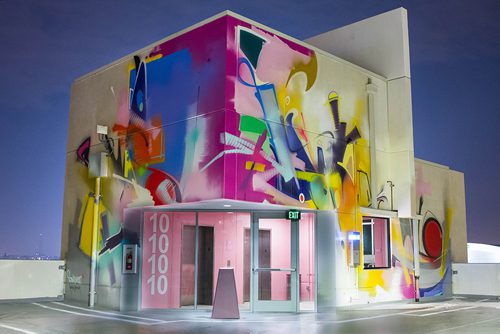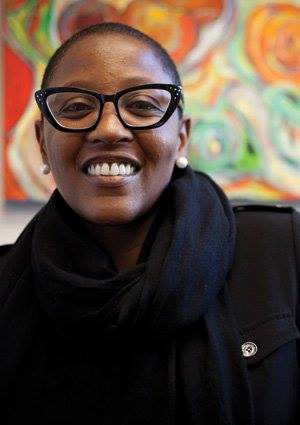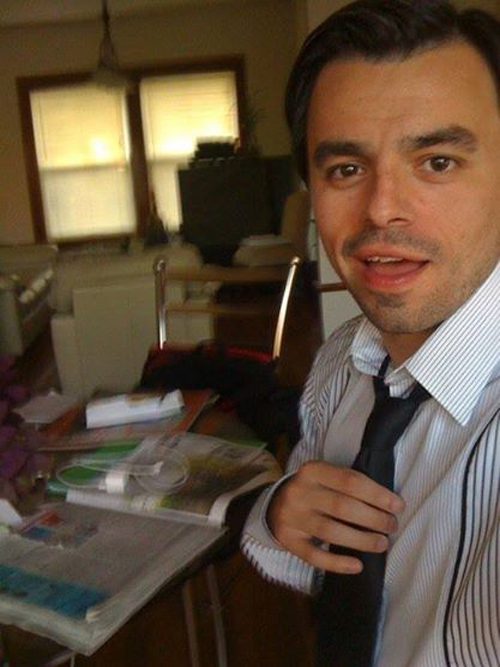
“I was in London and an editor over there asked, ‘What are you doing on Friday?’ And I said, ‘I’m doing these pictures.’ And she said, ‘For who?’ And I said, ‘For nobody, for me.’ Not every photograph has to end up in a 12-page portfolio or be worth a lot of money. It’s good to do this for yourself.” – Bruce Weber
There’s a reason the term “starving artist” has a place in our language. It’s because it is, for the most part, extremely difficult to pay for everyday necessities when you work as an artist.
Or is it? That’s the debate that will be discussed tonight (June 26) at Wayne State University. “The Business of Art” hopes to explore the tension between art, business and entrepreneurship. This is particularly relevant in Detroit today, where more artists than ever are trying to make a name for themselves with art, live in the city (read: pay rent and buy groceries) and remain true to their artistic selves.
A panel of experts will come together to talk about these issues at the Wayne State University’s College of Fine, Performing and Communication Arts. The event, which will be at the Schaver Music Hall, starts with a one-hour networking reception at 5 p.m. and a panel presentation at 6 p.m. The audience takes over at 7 p.m. for what is sure to be a colorful and interesting question-and-answer session.
The panelists include: Adriel Thornton, April Boyle, Brent Smith, Dominic Arellano and Jocelyn Rainey. Some background on Thornton: He is the music and production director for Detroit Electronic Music Festival (DEMF) and the founder of events production company, FreshCorp. He is a part of Detroit’s vibrant creative scene and is well-known as an influencer and thought leader.

Boyle is the director of Small Business Initiatives at D:hive. An artist (lead singer of the all-mom band The Mydols) and entrepreneur (founder and partner of pop-up supper Club Komodo Kitchen), she lives the artist/entrepreneur life and teaches it as well.
Smith is half of the critically acclaimed hip hop duo Passalacqua and a member of rap group Cold Men Young. He is a recipient of the Kresge Arts in Detroit Fellowship and has developed many eclectic and creative methods to promote his artistic pursuits.
Arellano is the executive director of Forward Arts and through his non-profit he develops opportunities for artists. His resume is long and includes affiliations with Detroit Electronic Music Festival, Detroit Symphony Orchestra and The Greening of Detroit.
Rainey is a dean of instruction at Wayne County Community College District. A painter and a sculptor, she is also the founder of Finding Mona Lisa 313, Found Art in Odd Places 313, and JRainey Gallery.

I talked to Thornton this week about the ground he hopes the panelists will cover as part of tonight’s discussion. As a longtime member of Detroit’s creative community, Thornton has many ideas about what needs to be discussed. Based on our conversation, I cannot wait to attend.
“I want to be a part of this conversation because I think it’s an important one to have. It really is that simple. As Detroit becomes more recognized for its cultural contributions in a whole new way, one of the missing element within our creative community is the business side of it,” Thornton told me.
Finding inspiration and creating art – whether it be music, paintings, writing, textiles, jewelry, apparel or anything else – isn’t the problem. It’s finding a way to boost small business, help business owners create jobs, building up the city with artists.
Oh, and making enough money to feed yourself. And not making so much that people start calling you a “sellout” or worse. No one said this conversation was going to be easy.
“You can make a living as an artist,” Thornton said. “That message hasn’t necessarily got to the creative community. But we can make changes by opening that dialogue. Many want to live off of what they do, but they don’t know how to make it sustainable. It’s an important conversation to have.”

One classic way that artists have tried to support themselves and one another is through the bartering system. Sure, that works fine to a degree, Thornton said. But there comes a time when you have to exchange dollars. And that can be an uncomfortable transition. Artists may not want to confront the issue, but the time has come for Detroit to make a little bit of dough off of its artsy self, he contends.
“If you want to struggle, fine. You can keep doing that. But if you want to live off of what you’re doing, you’ve got to make the money,” Thornton laughs. “It’s surprising sometimes how artists don’t think beyond the bartering system. But you’ve got to make the jump from there. You can’t barter with DTE. Believe me, I’ve tried.”
Perhaps the conversation has to start with artists believing that what they create has value, I ask him. Thornton, who works in public relations as well as event production, sees that challenge with friends and within his own business.
“I’m an event producer. I create environments – it’s the very essence of placemaking! I create experiences. It’s always amazing to me sometimes when I have to convince people that what I do has a real monetary value and that the time, effort and energy that does into it is actually clockable,” Thornton said. “Clients sometimes don’t understand the amount of time and energy that does into creating something like a press release and cultivating relationships so the writer actually pays attention.”
There’s also the issue of people seeing artists as working a “hobby.” Take Bruce Weber for example. The legendary photographer has a built a reputation over decades. He has shot pictures for some of the greatest magazines of our time. Yet you’ll still see people act shocked when they see his books go for $60 and up. Or that they have to pay money for a song that they could get for free through filesharing. Or that they have to pay to get into one of Thornton’s events.
“Some of it is because it’s intangible skills,” Thornton said. “If you took what an artist does and then compared it side by side with construction worker or the guy who is remodeling your house, the average person tends to believe that the guy banging the hammer has the greater value. But the guy who designed the home addition? They don’t value that!”
So how can we shift that thinking? How can we add value to the things Detroiters are creating? Is there value in graffiti? Is a Shinola watch worth $600? Is a Bruce Weber book meaningful enough to charge $60 and up? That is what tonight’s discussion is all about, Thornton said.

“It’s a great time to be part of the creative class in Detroit because it’s a movement. People are beginning to recognize that creative jobs, those entrepreneurs, are definitively something that is going to be a part of the Detroit renaissance,” Thornton said. “Guys like Dan Gilbert and other corporate CEOS are investing in their own way. They recognize that there is something to the business of art here.”
So the artists who created Gilbert’s Z Garage – they’re artists, even if they got paid? Yup, Thornton said. And stop questioning it.
“As far as the ‘sellout’ word goes, I like to use a music analogy,” Thornton said. “Say you’re a band, you’re planning in your garage, everything is good, you’re making songs that matter to you, finding your voice. But at some point you guys decide you want to play at the local bar. To me, at that point, you have to be open to other’s interpretations.
“You go from a personal hobby to the masses. And you have to allow for the masses to respond to what you’re doing,” Thornton added. “You have to be ready for someone that you necessary didn’t think was going to be in your audience to be there. And to appreciate that! You really haven’t sold out – but people still think more popular it gets, the more legitimacy it has lost. The reality is as soon as you’ve taken it out of your personal realm, than it’s out of your control.
“Should I be upset if someone I totally didn’t intend to come to one of my events comes? No! Absolutely not! If all of a sudden I’m doing something that I thought was avant garde and a bunch of frat guys shows up at that, shouldn’t I be upset? NO. … You have to take negative connotations out of success. If you want to succeed and make a living off of what it is that you’re doing, then you have to take away the bad connotations of success.”



